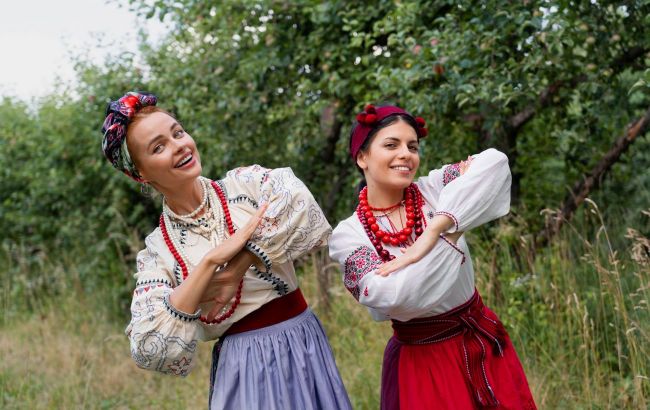5 Ukrainian words that have no translation in any language
 Five Ukrainian words that cannot be translated into another language (photo: Freepik)
Five Ukrainian words that cannot be translated into another language (photo: Freepik)
There are words in the Ukrainian language that carry not only meaning, but centuries of history, tradition, and the cultural code of the nation. These unique terms reflect the characteristics of Ukrainian daily life, worldview, and identity. Ukrainian public speaking coach Pavlo Matsopa shares on Instagram which words cannot be translated into other languages.
Some words do more than denote an object or a person—they contain entire worlds. The Ukrainian language has concepts that are impossible to translate literally, because each one is a cultural code, a history, a tradition, and an emotion all in one.
They are not merely linguistic units, but a living memory of the people, coming alive in everyday life, songs, and rituals. Below are five such words that speak about Ukraine louder than any slogan:
Kuma/Kum
This is more than just a church connection. It's a social model of Ukrainian friendship and trust. Kuma is not necessarily a godmother but often simply a close soul, a friend for all occasions: for gatherings, advice, laughter, and support.
Kumivstvo is both a ritual and a tradition, but also a living custom that has outlived baptism and become a separate phenomenon of our culture.
Palianytsia
This is not just a baked good—it's a test of kinship. Fluffy, fragrant, with a golden crust, palianytsia is a symbol of Ukrainian hospitality and identity.
It is not merely a word, but a code that opens the Ukrainian heart. It cannot be replaced with an equivalent: it carries the soul of the language, the taste of tradition, and the defense of one's homeland, even in an everyday word.
Vechornytsi
This is not an ordinary party, but an entire world of ancient youth communication. People didn't just sing and have fun here—they built their first romantic relationships, preserved crafts, and passed down traditions.
It was a space of folklore and freedom, where folk poetry and symbolism came to life. The word "vechornytsi" carries the pulse of living history.
Nenia
This is not only a tender word for a mother but a musical address from the depths of the Ukrainian heart. It is not a household term—it is ceremonial and sacred, woven from melody and sorrow, from memory and love.
Nenia does not replace Mama—it speaks a different language, the language of mournful and heartfelt song.
Trembita
This is not just an instrument—it is the voice of the Carpathians. Its sound pierces the valleys, calls from the mountaintops, and gathers the community. It is not translated because it is the name of a phenomenon.
Trembita is not merely a part of Hutsul everyday life, but a living legend, a musical call that still vibrates through the centuries.

